#intentional living community
Text
Review: "The Default World" Exposes the Contradictions of Found Family
What does it mean to exist in the default world? What would it be like to truly exist in a community that helps others in need? Is that even a possible structure? These are the questions Naomi Kanakia asks in The Default World, a darkly funny contemporary novel about a trans woman who visits a friend in his commune in San Francisco and ends up having her entire life changed.
Jhanvi is at a dead…
#book#book review#Books#by Jocelyn#commune#default world#indian#intentional living community#lgbtq#naomi kanakia#queer#the default world#the real world#trans
1 note
·
View note
Photo

Not Just Communes: A Reading List on Intentional Communities
Christine Ro brings us six stories highlighting communal living, past and present.
Like many people, I developed some strange fixations during the pandemic. One week, I fell down an embarrassing rabbit hole of watching, and learning the rules of, sheepdog trials. It was all too easy to sentimentalize rural traditions while cocooned within my 16th-floor apartment.
Intentional communities offered a more enduring fascination. They’ve been described as voluntary living arrangements of at least five people from multiple families, with a sense of affinity outside of the mainstream, though not necessarily pooled income. For instance, one tiny community that I learned about was a 10-person household in rural Austria, made up of permanent members and donation-based visitors, in a continuing battle for financial solvency and a critical mass of residents. Overall, it’s not hard to see why the pandemic drove my curiosity about intentional communities. Being cooped up at home naturally made me consider alternatives for a less isolated life.
Check out the reading list.
#communes#community#alternative lifestyle#alternative living#intentional community#longreads#reading list
311 notes
·
View notes
Note
“i’d rather lose both arms than you” wait… do you have that panel…

Batman #13
#this issue is actually sad and reminds me of robin year one#bc bruce fires dick and pretends like he doesn't need him (he does this bc he heard some goons were gonna kill robin--he wants dick safe)#and he's basically like ''welp maybe we'll run into each other again one day dick'' and he also breaks dick's robin picture#so anyway dick's like fuck bruce i don't want his money or his home or anything#so he goes to live on the street and he sells his communicator for money so he can eat#and he's looking for a job so he can support himself#and he also thinks batman has a new partner (he doesn't--bruce is just carrying a robin dummy around)#as if dick didn't already have enough abandonment issues amiright?#so anyway bruce's intentions were good but he went about it in such a horrible way that he abandoned dick entirely#Bruce Wayne#Dick Grayson#anon
145 notes
·
View notes
Text
The Magic of Everyday: How I Find Witchcraft in the Ordinary.
🌿🌕✨
Do you ever stop to marvel at the enchantment that surrounds us, hidden in plain sight? As I delve deeper into my journey of practicing witchcraft, I've come to realize that magic isn't just about casting grand spells or performing elaborate rituals—it's woven into the very fabric of our everyday lives.
🌟✨
Join me as I embark on this enchanting exploration of "The Magic of Everyday," where I'll reveal how I find witchcraft in the ordinary and embrace the extraordinary in the mundane.
🌟✨
Morning Brew, Morning Spells ☕🔮 Every morning, as the sun rises and the world awakens, I stand by the window, cradling my warm mug of tea or coffee, or in the summer months with iced drinks (I love an iced coffee!). With every sip, I imbue my drink with intentions of clarity and peace.
The Language of Plants and Crystals 🌿💎 During my daily walks, I've discovered a secret language spoken by the plants and crystals. The rustling leaves whisper ancient wisdom, while the sparkling crystals hum with energy. Nature, the most potent spell caster, teaches me to be still, listen, and learn.
Embracing the Elements 🌊🔥💨🌍 The elements surround us at all times, and recognising their presence is a powerful key to unlock everyday magic. I breathe in the fresh air, feel the earth beneath my feet, and let the rain cleanse my spirit. When I light a candle, I invoke the transformative power of fire. By connecting with the elements, I connect with the core of existence.
Enchanted Home Space 🏠✨ My home is my sacred space, a sanctuary for my craft. I've adorned it with little altars and candles, which I light to honour the spirits that reside within these walls. Cleansing my space with smoke incense purifies and refreshes the energy, filling the air with positive vibrations.
Moonlit Dream weaving 🌙🌌 Under the moon's tender gaze, I venture into the realm of dreams. I keep a dream journal by my bedside, capturing the mysteries that unfold during the night. In the gentle light of the moon, I feel closer to the universal energy that weaves us all together.
🌟✨
In the grand tapestry of life, there's magic in the ordinary—waiting for us to embrace it with wonder and gratitude. By cherishing these moments, we tap into the essence of witchcraft, where intention and reverence converge.
So, as you go about your day, remember to pause, breathe, and observe the magic that surrounds you. Whether it's in the flight of a butterfly, the sparkle of dew on a leaf, or the warmth of a friend's smile, the enchantment of everyday life awaits your discovery.
🌟✨
#baby witch#beginner witch#book of shadows#closet witch#divination#grimoire#magick#witch#witch community#witch tips#everyday magic#self discovery#mindfulness#intentional living#gratitude#witches of tumblr#solitary witch#eclectic witch#spellwork#witchcraft community#witchcraft 101#witchcraft#witch blog#witchblr#witchy things#witchythings#spellcraft#witchlife#rituals#spellcasting
511 notes
·
View notes
Text
Research opportunity!

If you were raised in a polyamorous family or communal living or are currently raising children in those environments, here is an opportunity to further research understandings of child development! As a Master's student at the University of Sussex, I am interested in studying the development of autonomy and agency in multi-adult child development.
Participants will be interviewed on the above topics for around 1 hour and the results will be a part of my dissertation published by the University.
To take part or find out more please contact me via email ([email protected])
#research#dissertation#polyamorous#polyamory#polyam#polyfamily#polyamorous family#communal living#intentional community#family#parenting#autonomy#agency#nuclear family#family abolition#youth liberation#familial structure#university
71 notes
·
View notes
Text
are you really into each other when you didn't point a gun into each others faces and show how much you are not afraid of the other?
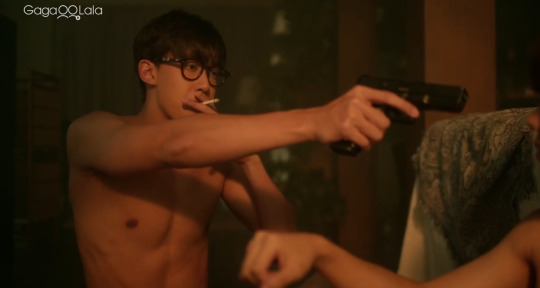
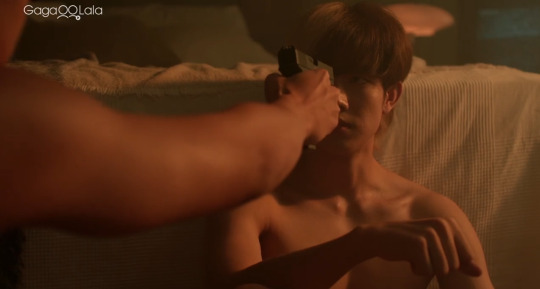
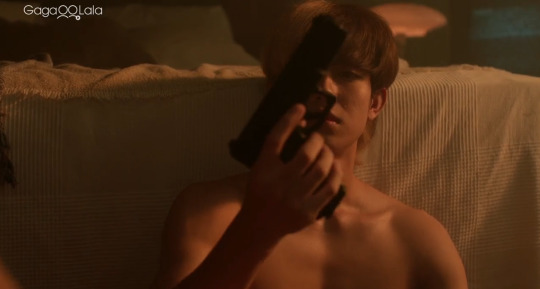
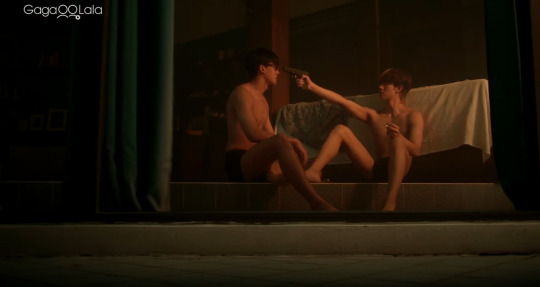
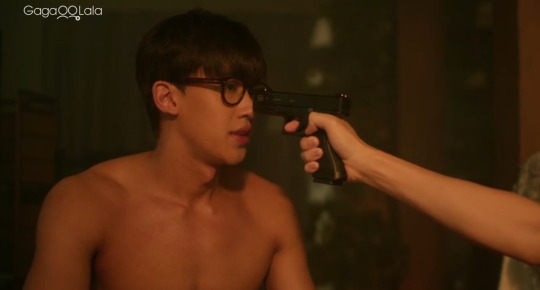
(also the way Prom holds the gun save, while Nont has his finger on the trigger because he's edging on danger and destruction. lowkey threatens Prom with that, but Prom trusts Nont to not hurt him)
#can yall stop saying Nont or the director is dumb when it's obviously an intentional choice of him having the finger on the trigger? -.-#YA KNOW in the scene of indirect nonverbal communication with that said gun#these guys are living on the edge#rules can be broken intentionally not just because someone doesn't know them#playboyy the series#playboyy#ep7#prom x nont
76 notes
·
View notes
Text
i've shared some of Alex Freed's narrative writing advice before and i recently read another article on his website that i really liked. particularly in branching/choice-based games, a lot of people often bring up the idea of the author "punishing" the player for certain choices. i agree that this is a thing that happens, but i disagree that it's always a bad thing. i think Freed makes a good case for it here.
...acting as the player’s judge (and jury, and executioner) is in some respects the primary job of a game’s developers. Moreover, surely all art emerges from the artist’s own experiences and worldview to convey a particular set of ideas. How does all that square with avoiding being judgmental?
[...]
Let’s first dispel–briefly–the idea that any game can avoid espousing a particular worldview or moral philosophy. Say we’re developing an open world action-adventure game set in a modern-day city. The player is able to engage any non-player character in combat at any time, and now we’re forced to determine what should occur if the player kills a civilian somewhere isolated and out of sight.
Most games either:
allow this heinous act and let the player character depart without further consequence, relying on the player’s own conscience to determine the morality of the situation.
immediately send police officers after the player character, despite the lack of any in-world way for the police to be aware of the crime.
But of course neither of these results is in any way realistic. The problems in the latter example are obvious, but no less substantial than in the former case where one must wonder:
Why don’t the police investigate the murder at a later date and track down the player then?
Why doesn’t the neighborhood change, knowing there’s a vicious murderer around who’s never been caught? Why aren’t there candlelight vigils and impromptu memorials?
Why doesn’t the victim’s son grow up to become Batman?
We construct our game worlds in a way that suits the genre and moral dimensions of the story we want to tell. There’s no right answer here, but the consequences we build into a game are inherently a judgment on the player’s actions. Attempting to simulate “reality” will always fail–we must instead build a caricature of truth that suggests a broader, more realized world. Declaring “in a modern city, murderous predators can escape any and all consequences” is as bold a statement on civilization and humanity as deciding “in the long run, vengeance and justice will always be served up by the victims of crime (metaphorically by means of a bat-costumed hero).”
Knowing that, what’s the world we want to build? What are the themes and moral compass points we use to align our game?
This is a relatively easy task when working with a licensed intellectual property. In Star Trek, we know that creativity, diplomacy, and compassion are privileged above all else, and that greed and prejudice always lead to a bad end. A Star Trek story in which the protagonist freely lies, cheats, and steals without any comeuppance probably stopped being a Star Trek story somewhere along the line. Game of Thrones, on the other hand, takes a more laissez-faire approach to personal morality while emphasizing the large-scale harm done by men and women who strive for power. (No one comes away from watching Game of Thrones believing that the titular “game” is a reasonable way to run a country.)
These core ideals should affect more than your game’s storytelling–they should dovetail with your gameplay loops and systems, as well. A Star Trek farming simulator might be a fun game, but using the franchise’s key ideals to guide narrative and mechanical choices probably won’t be useful. (“Maybe we reward the player for reaching an accord with the corn?”)
Know what principles drive your game world. You’re going to need that knowledge for everything that’s coming.
[...]
Teaching the player the thematic basics of your world shouldn’t be overly difficult–low-stakes choices, examples of your world and character arcs in a microcosm, gentle words of wisdom, obviously bad advice, and so forth can all help guide the player’s expectations. You can introduce theme in a game the way you would in any medium, so we won’t dwell on that here.
You can, of course, spend a great deal of time exploring the nuances of the moral philosophy of your game world across the course of the whole game. You’ll probably want to. So why is it so important to give the player the right idea from the start?
Because you need the player to buy into the kind of story that you’re telling. To some degree, this is true even in traditional, linear narratives: if I walk into a theater expecting the romcom stylings of The Taming of the Shrew and get Romeo and Juliet instead, I’m not going to be delighted by having my expectations subverted; I’m just going to be irritated.
When you give a player a measure of control over the narrative, the player’s expectations for a certain type of story become even stronger. We’ll discuss this more in the next two points, but don’t allow your player to shoot first and ask questions later in the aforementioned Star Trek game while naively expecting the story to applaud her rogue-ish cowboy ways. Interactive narrative is a collaborative process, and the player needs to be able to make an informed decision when she chooses to drive the story in a given direction. This is the pact between player and developer: “You show me how your world works, and I’ll invest myself in it to the best of my understanding.”
[...]
In order to determine the results of any given choice, you (that is, the game you’ve designed) must judge the actor according to the dictates (intended or implicit) of the game world and story. If you’re building a game inspired by 1940s comic book Crime Does Not Pay, then in your game world, crime should probably not pay.
But if you’ve set the player’s expectations correctly and made all paths narratively satisfying, then there can be no bad choices on the part of the player–only bad choices on the part of the player character which the player has decided to explore. The player is no more complicit in the (nonexistent) crimes of the player character than an author is complicit in the crimes of her characters. Therefore, there is no reason to attempt to punish or shame the player for “bad” decisions–the player made those decisions to explore the consequences with you, the designer. (Punishing the player character is just dandy, so long as it’s an engaging experience.)
[...]
It’s okay to explore difficult themes without offering up a “correct” answer. It’s okay to let players try out deeds and consequences and decide for themselves what it all means. But don’t forget that the game is rigged. [...]
Intentionally or not, a game judges and a game teaches. It shows, through a multiplicity of possibilities, what might happen if the player does X or Y, and the player learns the unseen rules that underlie your world. Embracing the didactic elements of your work doesn’t mean slapping the player’s wrist every time she’s wrong–it means building a game where the player can play and learn and experiment within the boundaries of the lesson.
#every choice you make while designing your game says something about your experiences and your world view#whether you think it does or not#i think abt that interview with hozier where he talks abt all art being political & someone in the comments tried to disagree#by saying a child's drawing of their house cant possibly be political & someone else replies:#but it is. what does a house look like to them? is it one story or two? is it a trailer? an apartment? these things imply something#about that child's lived experience#another post i reblogged on kithj that talked abt these games like the forest or far cry where you play as a random white guy#that is being hunted by the evil native people. and the game requires you to just indiscriminately kill them#without thinking about it bc it's a game and you're the protag. that says something whether it was intentional or not#allowing the player character to do or say certain things without consequences communicates something to the player!!!#this does not mean you should punish them but that you should think about your narrative design and your choices and their outcomes#think about what makes sense in your world#and think about what it could imply in the real world. to the player#and think about all the different paths you can explore with them in this way#writing
70 notes
·
View notes
Note
I find it funny you post things about the wrong people becoming therapists yet you want to be a social worker and actively defend rapists and abusers 💀
CW: mentions of SA/cycles of abuse.
you must think you're really clever. the therapy industry has a huge amount of problems (like any other industry built on service to other humans, like the medical industry), and i think even the people who want to work within the therapy field (whether as a psychiatrist, a counselor, a therapist, a social worker, a sex therapist, etc) can still critique the many issues within it, mainly the racism, eurocentrinism, and the individualistic values that much of talk therapy promotes. I don't know where you got the second part of your statement, because not only is it widely inaccurate of what I was thinking of doing in social work, it also is just not a great idea to hold about people who work with people who do harm.
there are therapists/social workers who work exclusively with cops/law enforcement, and ethically those people CANNOT work with people who are victims of law enforcement or people who "break the law" (incarcerated folks). It just doesn't work, because if you work with both, it can create a conflict of interest. this is the same with people who work with victims of assault (SA or not). these therapists/etc who work with victims of assault/abuse CANNOT work with abusers. The same is vice versa, as in people who work with those who do serious harm cannot work with their victims.
I think your self righteousness is misplaced. You clearly have a lot of work to do in regards to removing your own feelings and judgement from the work that many therapists and social workers do. I don't know if you know this, but everyone (yes, even people who do serious harm) are deserving of basic human necessities, like oh i don't know. Housing, healthcare, or therapy. It is not my job as a future social worker to judge people, that is wickedly different from holding someone accountable. Judging is like sending someone to prison for 25 years, further removing them from the communities and resources that could generate accountability. Further, no one can hold anyone accountable unless said person consents to being held accountable. There are different procedures for whether they do or not. My job, as a future social worker, is to help people, because I believe all people deserve to ask for help and receive the help that they need.
Not sure if you know, but I'm against incarceration/punishment. I believe we hold punishment as the way to "teach people a lesson", but if you do not work with people and actively step in and disrupt cycles of trauma (housing crisis, hunger, substance abuse, interpersonal abuse, racism, ableism, etc), you will only find that people re-offend unless they are given the resources they need to be better. Yes, there are people who genuinely want to do harm, but harm does not exist in a vacuum, and if you are unwilling to acknowledge that, then I genuinely wish compassion to anyone who slips up around you and shows you that anyone is capable of any level of harm.
People who do serious harm are victims of the same cycle abuse as everyone else. You white knuckling your self righteous black and white morality is the reason why you cannot understand that even the worst kinds of people deserve the same access to care as victims of harm. You think that people who work with individuals who do harm as them defending them, when the reality is many of us with the brains built to do this kind of work want to stop this harm and correct abusive behavior. Unfortunately for you, people are capable of change. No one is asking you to like anyone or their actions (because I don't have to like the people I work with either, freak), but what people like me are asking you is to accept the fact that all people do harm, and when people are given the community and resources to, they can change for the better and recognize the serious harm they have caused.
Not everyone who goes into this work wants to aim their energy into the "socially acceptable" work. I think social justice morality and the sanitization of revolutionary politics has rotted our brains into believing that we must do and be the most "woke" person ever, channeling our energy into victims of harm. But what we fail to recognize through that is that some people would rather divest their energy into de-radicalization of fascists, or others want to put their energy into theory, others want to learn how to connect with the land and be sustainable, and others want to learn how to help others. And just like them, there are people who are willing enough to use their skills and compassion for conflict/resolution, accountability practices, and to help those who have harmed. Because, unfortunate for you, activists should NOT be juggling being the theorist, farmer, therapist, spiritualist, leader, mediator, protestor, rioter, etc and etc. Some people are simply built to put their energy into what they are good at. This doesn't mean that the farmer does not encourage the theorist to continue thinking and writing their theory. And I am sure the theorist, one who cannot farm and till, is grateful for the skills the farmer brings once dinner comes around.
it's funny really because I still am not sure about what I want my focus to be in social work, and for you to assume that I am "defending" abusers/rapists by thinking about working in extremely hostile, tense, and exhausting environments in the attempt to disrupt cycles of violence is me "defending" these individuals...it just reveals more about you than myself, anon. Many people already work with abusers/rapists (many of those therapists being victims of abuse/SA as well), so you may as well call the ones who are actually doing the work rn "defenders" of abuse. see how that bodes for you.
that's all I have to say.
#muertoresponds#hope that helped for anyone else to understand#for further context im an anarchist who is also an existentialist#and those two codes of living have greatly affected the way i think and interact with the world#if anyone else has any questions feel free to ask them#someone somewhere has to do the dirty work#you dont have to like it or like the people who do it#but there are spaces and communities where these people are needed and necessary to disrupt cycles of abuse#words r important as well so take my usage of the word harm as a general term for all systems and cycles of harm#but harm may not be abuse#as in that it is cyclical and intentional and pre-meditated cycles of abuse#like man i havent even started doing social work training or education yet and youre already on my ass#anyway if anyones interested my MSW intership is with immigrant children and families so no i am currently not working in restorative justi#but who knows i could be one day idk#anyway#thats all
83 notes
·
View notes
Text
if I was a character I would've gotten non binary headcannoned so hard
#wordstag#back in da day. Was wondering what my problem was. Lo and behold I was trans the whole time#Thank cod for the queer community otherwise I genuinely have no clue what I would've done with my self.#Bro was so preoccupied with becoming nothing because they weren't what they wanted to be#that they didn't realize they could literally be what they wanted to be. For free. And no one could stop them.#still recovering from that bit to be honest. Crazy how childhood effects you or whatever.#it wasn't even like. Oh I wish I was the opposite gender sorta stuff. It was just full stop#Hey there's something wrong with me because I feel limited connection to my agab. I should die about it.#anyways online spaces were my jam. Was often perceived as male and I LOVED the change in pace#like gender never even really came up 99% of the time! What a beautiful world to live in...#I think my problem was that I saw male as like... the more neutral option?#women wear dresses and makeup and do their hair and men just. Don't#I THINK THE PROBLEM THAT ROOTED THAT PROBLEM WAS GROWING UP AROUND MY GRANDPARENTS#Who were always excited for me to be a beautiful young lady. Genuinely the best intentions but I wasn't vibing with it and that simply#wasn't an option? Like once I wanted to wear a suit to homecoming and it was like. A full stop no. I didn't even like dances#all that much. But skipping out on dances meant I was Wasting Highschool or whatever. Sad world.#anyways what. Long story short a lot of my childhood was spent longing to be perceived as something other than#my agab without saying that out loud because I thought saying something like that would cause the sky to fall.#YOU KNOW WHAT DIDNT HELP ALL THOSE GIRLS PROGRAMS#Like. I support women and all but being a part of them always felt vile. I didn't want to be a girl I just wanted to Be yknow.#have since gotten over that though and exploited my girl ness. Hashtag woman in stem hashtag aren't I cute? A woman pursuing#a scientific career? Adorable stuff? You should give me all of your money. Still feels vile but a different#perhaps more evil kind of vile. The exploiting the system of gender sorta vile#anyways. Cutting myself off here. Good night folks
12 notes
·
View notes
Text
Drawing steps
Step 1: try to draw
Step 2: fail to draw
Step 3: 10-30 of the most intense, violent anger, self loathing and impulse to break things and/or self harm ever felt by mankind
Step 4: anywhere between a few hours to a few weeks of depression and suicidal ideation, occasionally going back to extreme self loathing and anger
Step 5: wait until the temptation to try again grows too strong to resist and go back to step 1
( at least this time my anger and frustration was slightly less aimed at myself and more outwardly aimed at fate. So i guess that's progress. We'll see how long step 4 lasts. In the meantime I'll be face down in bed listening to "please please please let me get what I want" by the Smiths when it doesn't make me want to kill myself too strongly)
#i have no intention or energy to follow through on any ideation#it's less of an 'i am going to kill myself'#and more of a 'death would be a mercy when contemplating an existence such as I have'#life without art is a sad one indeed#and the inability to communicate is a terrible kind of loneliness#together it makes living very painful#but I remain anyway
29 notes
·
View notes
Text
staring down the "i might actually have to go back to retail" barrel 😬😬😬
#in all of my years of freelancing it has never once been this hard to find work#to be clear i am not upset with anyone here or any extended communities#i am upset with everyone responsible for making the cost of living so high irl#and everyone that keeps shilling ai shit with the intent of devaluing creative work#it is not our fault. it is theirs#the one and only upside is that i'll have a steady stream of income#but even then i can't work as much as other folks for mental health reasons#topics for my therapist later lol#anyway take care everyone! hope you folks are doing alright out there
13 notes
·
View notes
Note
what do you think mulder thinks of diana fowley after biogenesis through amor fati? i don't think we really see anything on screen/in text (though i think it says a lot that he didn't have much of a reaction when scully came to his apartment & instead focuses on scully & their relationship lol)
yeah there’s basically NOTHING in the text but tbh i think finding out for certain that she was working with CSM really kindaaaa snapped him out of some things…mulder doesn’t give a fuck what people do to him, obviously, but it’s a different thing entirely to find out that your ex is involved in something like that. like there are MILES from “my partner makes me feel like shit and is maybe pretty abusive” and “my partner is like 3rd on the call list of a eugenics group that treats women like test subjects”
like, scully was right, diana was monitoring MUFON women and collecting data on them. she was heading up the tests on cassandra. she probably knew the truth about samantha the whole time. just nasty nasty shit.
she’s the villain in the amor fati dream: the dismissive symbol of abandonment that offers another path.
one of the most interesting scenes of diana’s character to me, is in the sixth extinction, when she comes to see mulder in the hospital. and she knows what the effects of the artifact are, that he can hear what she’s thinking. that, therefore, he knows who she works for and what she’s doing. (imagine your ex-husband/wannabe boyfriend/obsession finds out you’re lying to him because he can read your mind….shit is crazy!)
and she tells him that she knows he knows. but that he also knows that she loves him.
and she does love him. there’s no reason to lie about that then, she knows he would be able to tell.
scully knows it without hearing it, that’s how she gets diana to save mulder’s life, ultimately. she comes to her and begs. tells her to please just think of him, who he is, who he was when she met him, who he is now. in the end, because of scully weaponizing how diana feels, diana can’t go through with it. she gives her life to help him.
diana seems to be one of those influences on mulder that’s only really all that significant when she’s close by. it’s like how all the tension in the beginning builds up to him getting in her car when she tells him to, leaving scully, when diana is there instructing him.
i think being able to know who she truly was and her true intentions and allegiances, prior to her death, really goes a long way in the way he responds to losing her.
don’t get me wrong, i think he’s upset. you can kind of see the shock cross his face when scully tells him. but he stays focused on his goal, which is to express to scully how important she is to him, in the wake of how discarded diana always made her feel.
mulder loved diana and grieves that she was killed, he doesn’t have it in him not to, but mostly he…wanted something from her, right? he wanted that approval and “affection” and to please her. he wanted her to believe him. the first thing that she says to disarm him (in the end) when she can tell he’s uneasy, is, “hey. i’m on your side.”
learning who she really is, it’s easier not to crave her approval so badly.
(this is the crux of amor fati’s “last temptation.” it’s diana saying: you’re childish. you are going to fail. your path is not your own. “you have to let go, fox.” and it’s scully countering: we need you. this is who you are.)
(it’s why he responds in the end by telling scully that it’s her that’s the voice of truth.)
and then in death, diana’s not…there for him to want anything from!! so it’s like, again, yeah he obviously feels the loss, this was someone who meant a lot to him for over a decade. but also it’s likeeeeee freeing in a way? it makes things simpler in a way? (he’s able to communicate all of that to scully instantly after hearing diana is gone, after over a year of the tension hanging around it)
if you asked him about diana now, or even a year later, i think he’d be like…damn that’s crazy! 😭😭 mulder doesn’t have an awful lot of object permanence you guys sjdjsjfj
when scully comes to tell mulder that diana was killed, and he says to her, “you were my friend, and you told me the truth,” the language matters so much. that’s what scully called diana, “i know she was your friend,” and he turns it back onto her. you were my friend. you told me the truth.
in my opinion, it’s not that he doesn’t love and grieve diana, but that there’s a freedom in knowing the truth. knowing who someone is, and their intentions. knowing who has your best interest at heart. knowing where you stand in the world, what you want to do.
that’s really what allows for the openness and lightness of s7, in the wake of diana’s absence. mulder’s always seeking, always learning.
#in a lot of ways diana knows mulder sooo well#like her mannerisms and every little word and phrase are so carefully chosen#like that moment in ‘the end’ when she says she’s on his side and takes his hand#her VERY first line on the show is telling a room full of people that she thinks mulder is right. that she believes him.#something she continues to enforce when she needs to#i was just looking at ‘the beginning’ and the way that when he kinda doesn’t trust her after she took over the x-files#and they find her outside#she says ‘fox. i’m going to get out of the car. i’m alone. alright?’#like she communicates with him in a way where like….if she had good intentions it would be exactly how to help/calm him#but because she DOESNT it’s EXACTLY how to have him eating out of the palm of her hand#very interesting character very vile woman#anyway idk i think there’s something very ‘good for him!’ esque about how quickly he moves on from her 💀#i think he’s able to for all the reasons i cited here about knowing what she’s doing and who she is#but mulder is sooooo easily wrapped up in trying to please someone or trying to help someone and getting in a shit situation#and that controls so much of their lives for so long#and i was trying to think about it and i feel like diana’s death kinda is the last time that he’s so trapped in that!#he still does it on a smaller extent ofc but it’s less about the person more the situation after diana if i recall#asks#amor fati#diana
61 notes
·
View notes
Text

There's a quiet strength and beauty in walking away from people and things that no longer serve you and drive your growth.
No matter how difficult walking away can be, living a life uninspired and mundane will never be a proper way to live. ~beccawise7💜🖤('22)
#my mind#my thoughts#my words#spilled writing#writing community#liveinspired#livewithpurpose#move on#live it well#intellectualgrowth#intentional living#buildyourkingdom#growth mindset#walking away#strength#strong women#strong men are beautiful#friday feels#friday thoughts
17 notes
·
View notes
Text
talking to my old trainer at the barn i used to work at because i need references and she sent me this picture of my horse friend

and i feel this image in my chest in a bad way lol. girl his spine. 🥴
#i love him very much and i hate knowing that he has to live in a stall and work in ways that hurt his body#it kind of looks like he's lost some topline since i was last there a couple years ago too which is like. predictable but sad#and the way this barn is “one of the better ones” like they don't treat people like shit the horses do not compete are not subject to many#of the worse techniques out there like they dont use spurs theyre not held chin to chest they dont beat the shit out of them etc#it could be worse. but this is still bad and kind of heartbreaking#but they think he's doing awesome. and they have the best of intentions and care about the horses a lot#just not enough to listen to anyone except for one specific french guy about how horses and dressage work lol it's very. silly#i think they are a little slow on business lately. possibly due to not updating their horse management/training practices since 1970.....#i mean it does also cost at least $2000/month to board your horse there lmao#if you are REALLY into niche as hell horse communities you may recognize this arena but if you do pretend you didn't please#me
7 notes
·
View notes
Text
Thinking about the Kickpuncher comic made for the DVD for season 1, which is meant as being made by Troy and which also has Britta and Annie falling in love. Troy is a lesbiannie truther fr
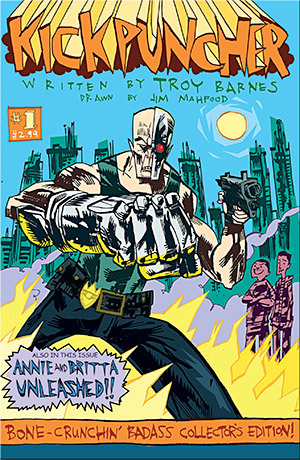
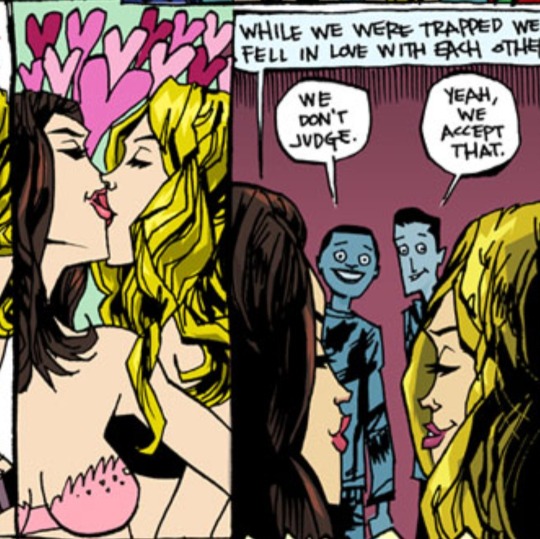
#like yes that was not the intention at all but shhhhh let me live in my lesbiannie fantasy#community#nbc community#troy barnes#annie edison#lesbian annie edison#britta perry
78 notes
·
View notes
Text
Looking for villagers
If any of you are late diagnosed ND/autistic person, ideally are UK based (though if you're willing to go through all the annoying processes you can come from wherever) and are a kind, empathetic, amiable, conscientious person and would be up for living the English countryside permaculture homesteading life in community with me, my husband, our future kids, other autists and NDs and all our animals then feel free to message me with a little bio about you, and I'll put you on my list that I'm compiling of potential villagers
It will be beautiful and lovely and lgbt friendly as well of course
#solarpunk#hopepunk#hopecore#peaceful revolution#greenhorizon#anti capitalism#climate change solutions#naturecore#forestcore#lunarpunk#homesteading#cottagecore#england#britain#community#intentional living#intentional community#sustainability
15 notes
·
View notes